Reviews
Ron Howard
USA, 1988
Credits
Review by Katherine Follett
Posted on 17 June 2013
Source 20th Century Fox DVD
Categories Failed Franchises
Does anybody feel sorry for George Lucas? After the mess that was the Star Wars prequels and his lamentable insistence on sexing up the originals, many film fans have turned against him. There are theories that much of what was good about the original Star Wars was either done by others or imposed by constraint, and, left to his own devices, Lucas possesses little more than a naive, simplistic imagination, with no sense of restraint or narrative focus.
This is nearly a 180° flip from Lucas’ popular image when he tried to develop Willow into a fantasy franchise in 1988. At that time, Lucas had the Midas touch; he was considered a crack storyteller and prime entertainer, more than capable of founding another film franchise on the order of Star Wars or Indiana Jones. The film’s reputed flaws (sprawling, nonsensical plot; moral childishness, overeager special effects) were mostly blamed on relatively new director Ron Howard. Of course, from today’s perspective, everything “wrong” with Willow sounds exactly like everything wrong with The Phantom Menace (and whatever your feelings on Ron Howard, floppy storytelling is rarely an issue). From here, Willow’s failure seems like an early surfacing of Lucas’s fatal weaknesses, and the abandonment of his planned Willow-ilogy feels like a gift from the future.
This story would make a lot more sense if Willow actually sucked. Those of you who have been burned by childhood favorites that turned out to be terrible upon adult viewing: fear not. Your memories of Willow as scary, sweet entertainment hold up surprisingly well. Willow is competently put-together, decently told, beautifully shot, and at times, genuinely exciting, funny, and touching. Val Kilmer brings just the right note of charismatic informality as Madmartigan. (“There’s a Peck here, and he’s pointing an acorn at me!”) The love interest feels natural. The special effects are fun, and have a charming pre-CGI handmade quality. The action set pieces - a sled ride down a mountainside, a battle with a grotesque two-headed dragon, a final fight in a tower fortress - are gripping. It’s as well done as any recent film in the fantasy genre. Why, then, is it generally remembered in the industry as an artistic and commercial embarrassment?
The key might be in the next-to-last sentence: fantasy. Willow initially had a difficult time gaining financing, even with Lucas backing it, because Hollywood was of the general opinion that fantasy (specifically the sword-and-sorcery medieval kind, as opposed to the light-saber-and-The-Force outer-space kind) didn’t sell, or at least didn’t make a profit given how pricey it could be to shoot. Willow, by falling short of a blockbuster, fulfilled this expectation.
It wasn’t until Peter Jackson raked in huge profits with the Lord of the Rings that fantasy was considered a viable genre, and even now, Hollywood tends to stick with proven books. Willow went all in for the fantasy genre. Its plot details, large and small, are lifted right from Lord of the Rings. There are even touches that seem to predate Jackson’s film trilogy: many of the epic outdoor scenes in Willow were shot in New Zealand, and the scale and majesty of the place feels familiar. The film also includes a gravity-defying battle between two wizards in a fortress tower, a fight that cannot be coincidental when it’s revisited in Jackson’s film (the scene is not found in Tolkien’s books). In Willow, the sorceresses are both women, which gives it an inventive twist not found in Lord of the Rings. Willow might be not so much a failure as it was ahead of its time. If released today, a studio might be able to wring five or six films out of the thing.
Decent film, bad genre: was that all it needed to doom Lucas’s Willow franchise? Yes and no. There were reasons why Hollywood avoided fantasy, and Lucas seems to walk right into every pitfall. Fantasy has long been looked down on as a genre for children, or at least for extremely childish adults. Willow does skew childish, in a now-characteristically Lucas way: the brownies are clownish and sometimes annoying; Willow as a character is sickly sweet; everything is sexless; while there are brief moments of gross or scary effects, the violence is basically bloodless. Fantasy is also considered a bit silly, and the lute-strumming Nelwyns and the sorceress in the form of a warble-voiced possum do little to counteract that stereotype. Scenery chewing is often in evidence, especially from the evil queen. (Then again, who wants a naturalistic evil queen?) The plot is, as mentioned, derivative and predictable, though certainly not more than that of your average superhero picture.
Certainly, franchises have been founded on worse. Given that Willow is good but not great, and pair that with the combination of an overrated Lucas and an underrated genre, and the film already seems commercially doomed. What we’re left with is a movie that, despite not being a runaway hit, was still seen by a huge swath of kids and then quickly forgotten. Today, we get dust it off and watch it for nostalgia’s sake, gratefully realizing as we go that, Hey, this isn’t so bad.
More Failed Franchises
-
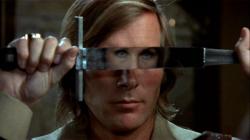
Captain Kronos - Vampire Hunter
1974 -
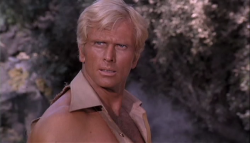
Doc Savage: Man of Bronze
1975 -
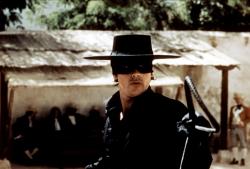
Zorro
1975 -
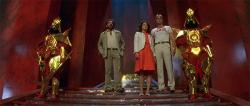
Flash Gordon
1980 -
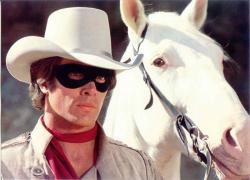
The Legend of the Lone Ranger
1981 -
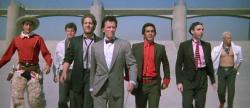
The Adventures of Buckaroo Banzai Across the 8th Dimension!
1984 -
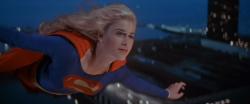
Supergirl
1984 -

Dune
1984 -

Masters of the Universe
1987 -

Howard the Duck
1986 -

Willow
1988 -
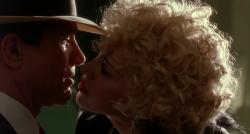
Dick Tracy
1990 -
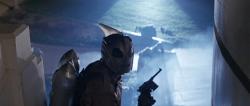
The Rocketeer
1991 -
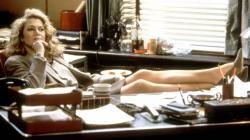
V.I. Warshawski
1991 -
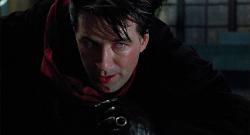
The Shadow
1994 -

Godzilla
1998 -
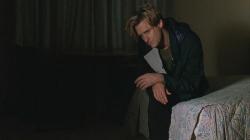
The Zero Effect
1998 -

The Mod Squad
1999 -

Hulk
2003 -

Master and Commander: The Far Side of the World
2003 -
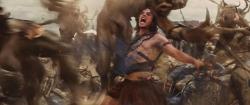
John Carter
2012
We don’t do comments anymore, but you may contact us here or find us on Twitter or Facebook.



